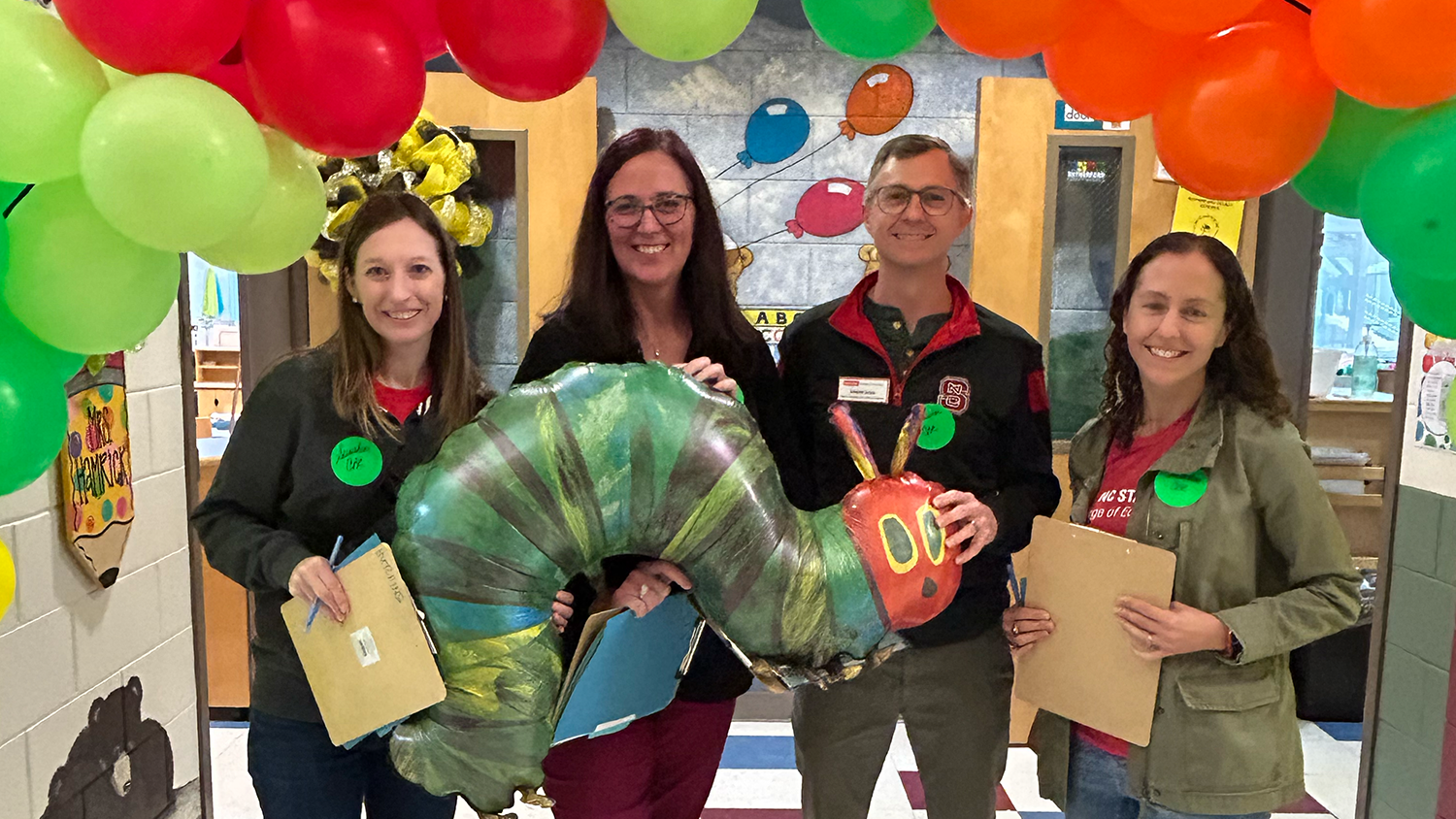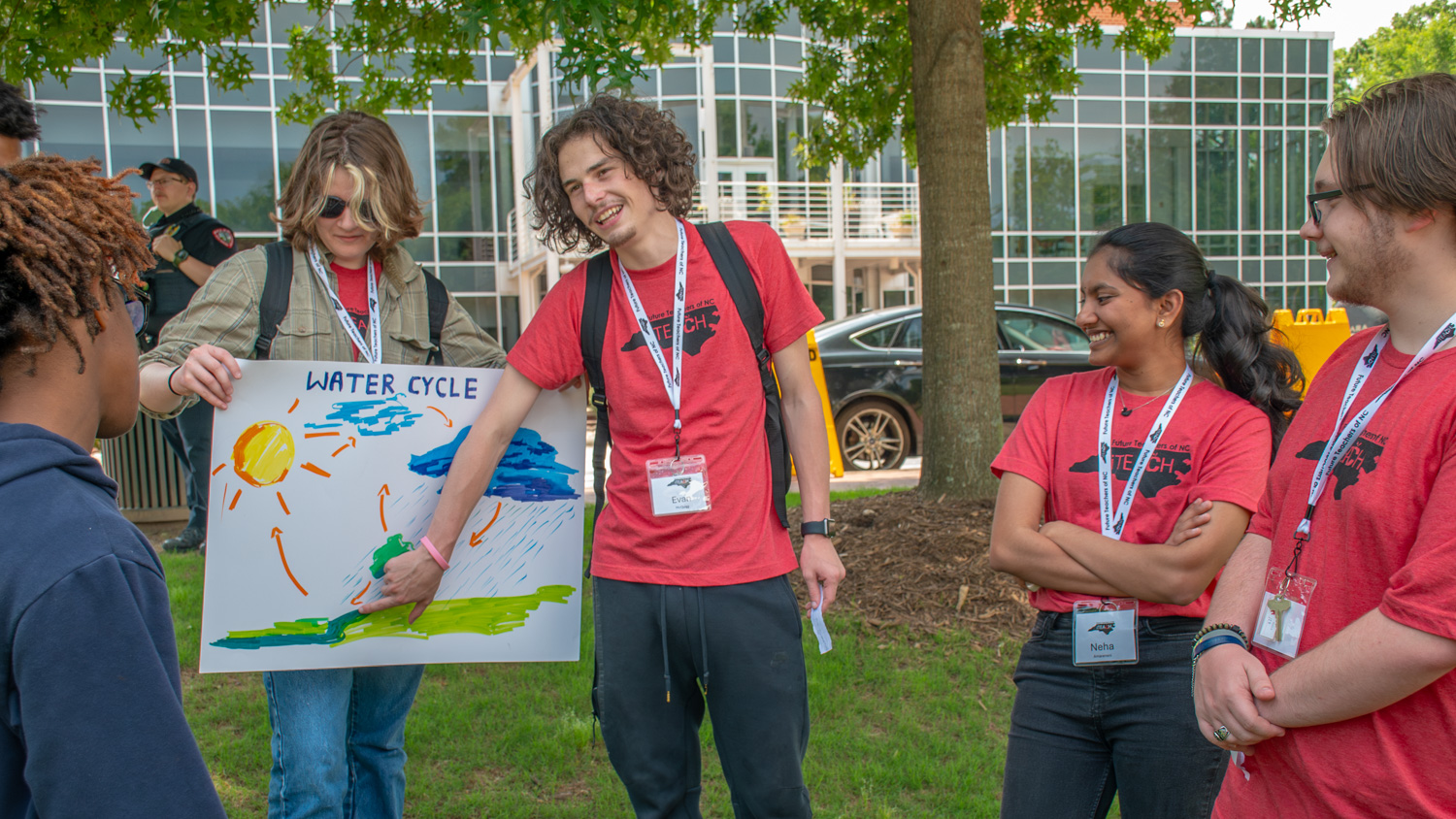‘Dessert with Democracy’ Helps Educators See the Value of Classroom Discussion Through Open Forum for Community
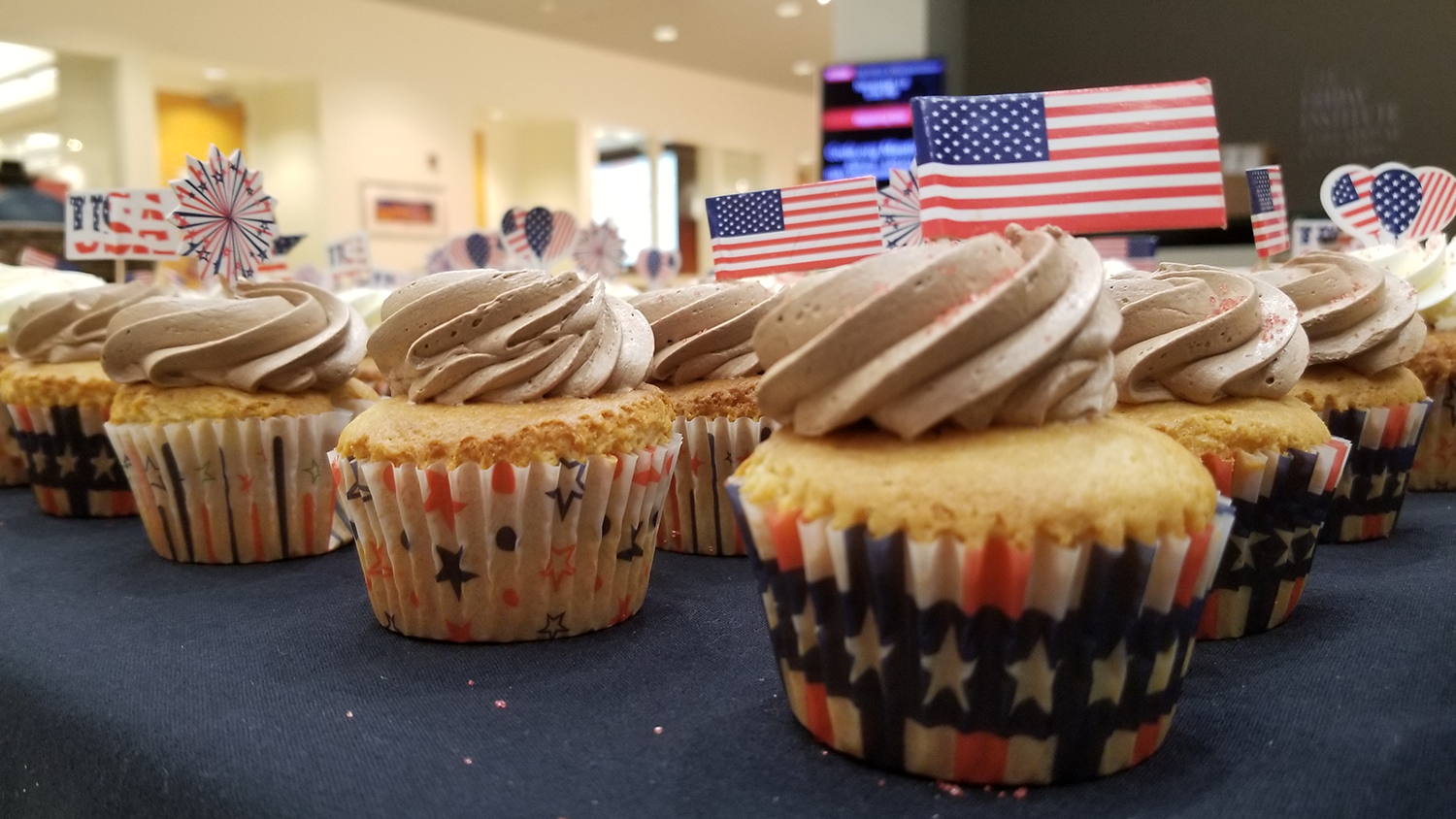
Paula McAvoy, Ph.D., an assistant professor of social studies education at the NC State College of Education, had been hoping to host an inter-generational community forum focusing on political issues for quite some time when a former student gave her an idea.
Jeremy Thomas ʼ19MED, the former student who teaches at Southern Wake Academy, told McAvoy that he and a colleague, Russell McBride ʼ16MAT, had developed a “dinner with democracy” event where social studies students hosted parents for a question and answer session about politics. McAvoy and Assistant Professor Christy Byrd, Ph.D., who have been co-teaching the Classroom Discussion in Theory and Practice Special Topics course this fall, expanded upon Thomas’ idea to develop “Dessert with Democracy.”
Hosted on Nov. 13, the event was open to local middle and high school students, teachers and community members who were organized into random groups for discussions on three different topics: lowering the voting age, implementing free college for in-state students at public universities and arming teachers in classrooms.
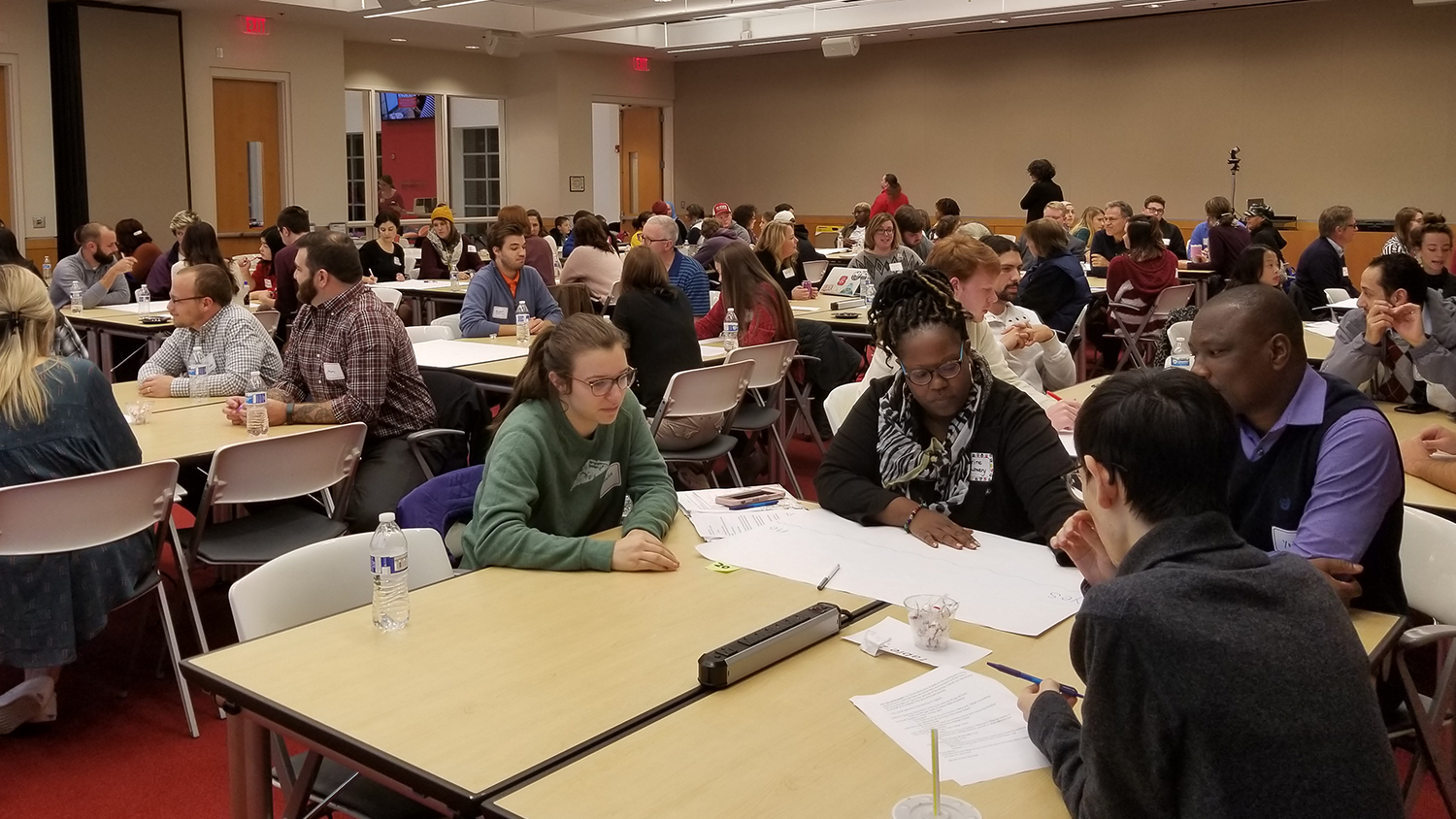
Graduate students from the class taught by McAvoy and Byrd, as well as from McAvoy’s Contemporary Approaches to Social Studies course, gave short presentations about each topic and helped facilitate a “tug of war” activity, which prompted participants to list reasons for and against each issue, regardless of their personal opinion.
“People enjoyed the activity because it took the emotion out of the discussion. They didn’t have to defend the issue and you’re not going to get argued with for saying something, because it’s about generating ideas,” McAvoy said.
Following the “tug of war” exercise, participants were invited to engage in open discussion about each of the three issues.
“It’s about dialogue and needing to understand people’s experiences and share your own experiences,” Byrd added. “It’s about storytelling and empathy and perspective thinking as an avenue toward understanding differences.”
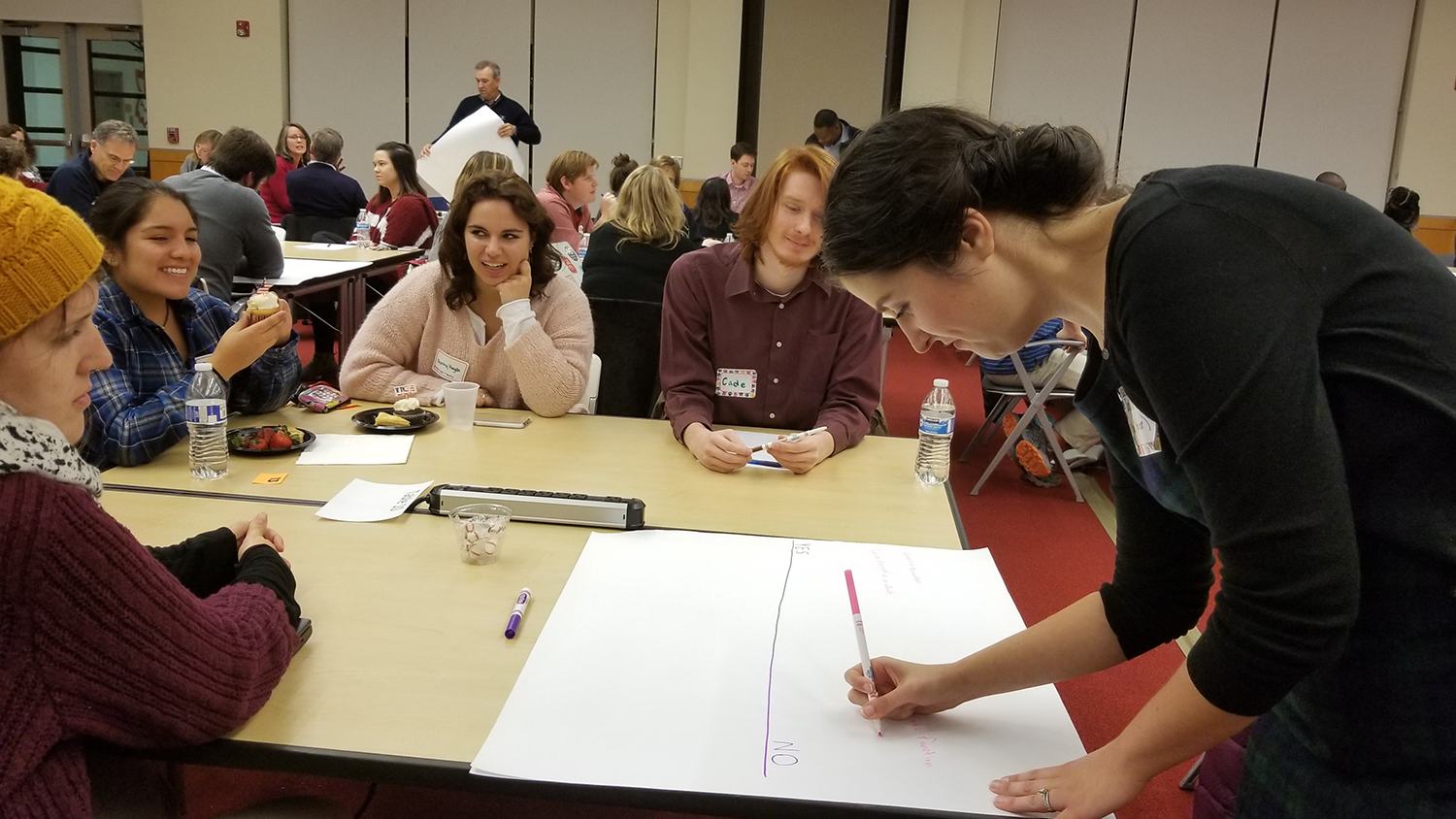
Steven Colford ʼ20MAT, who hopes to teach social studies at the high school level, facilitated one of the group discussions. He said he believes that the “tug of war” activity is a beneficial exercise for fostering student engagement in a future classroom.
“The groups I facilitated all had great diversity of thought. It was nice to sit down with fellow citizens and discuss these issues without rancor or hard feelings,” he said. “When you have the opportunity to sit down and talk with people on the other side of an issue in a non-threatening environment, it gives you hope for democracy.”
McAvoy, a former high school social studies teacher and co-author of The Political Classroom: Evidence and Ethics in Democratic Education, said that teaching future educators the importance of providing opportunities for students to discuss and disagree is a point she emphasizes in her classes. She hopes that the future educators who participated in “Dessert with Democracy” came away from the event with a greater understanding of how discussion can be used as a classroom tool.
“A lot of teachers think it’s not a good use of time to use discussion, that it takes away from content learning. What I hope they saw is that it actually is a great learning exercise and people like it,” McAvoy said.
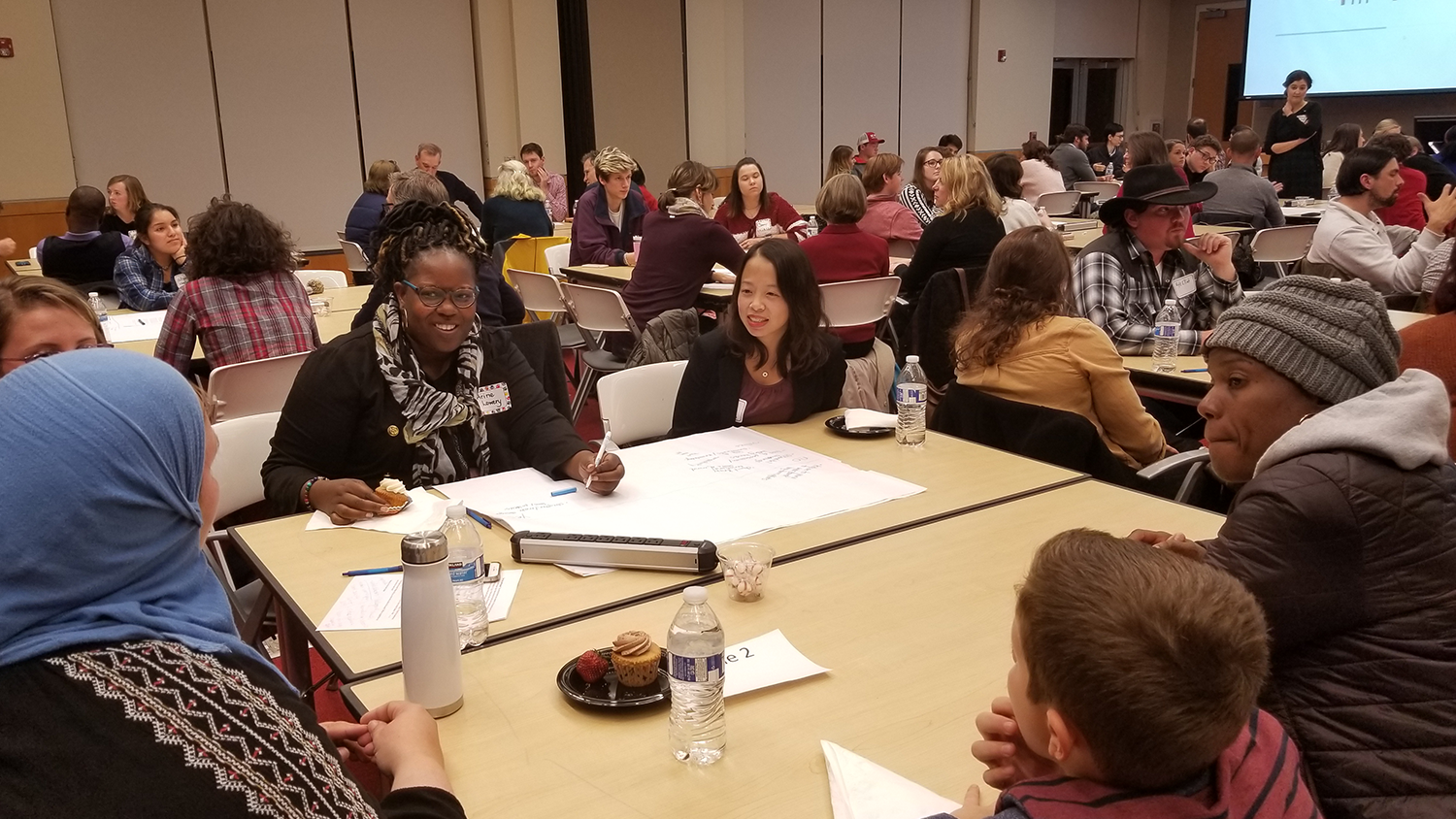
- Categories:

